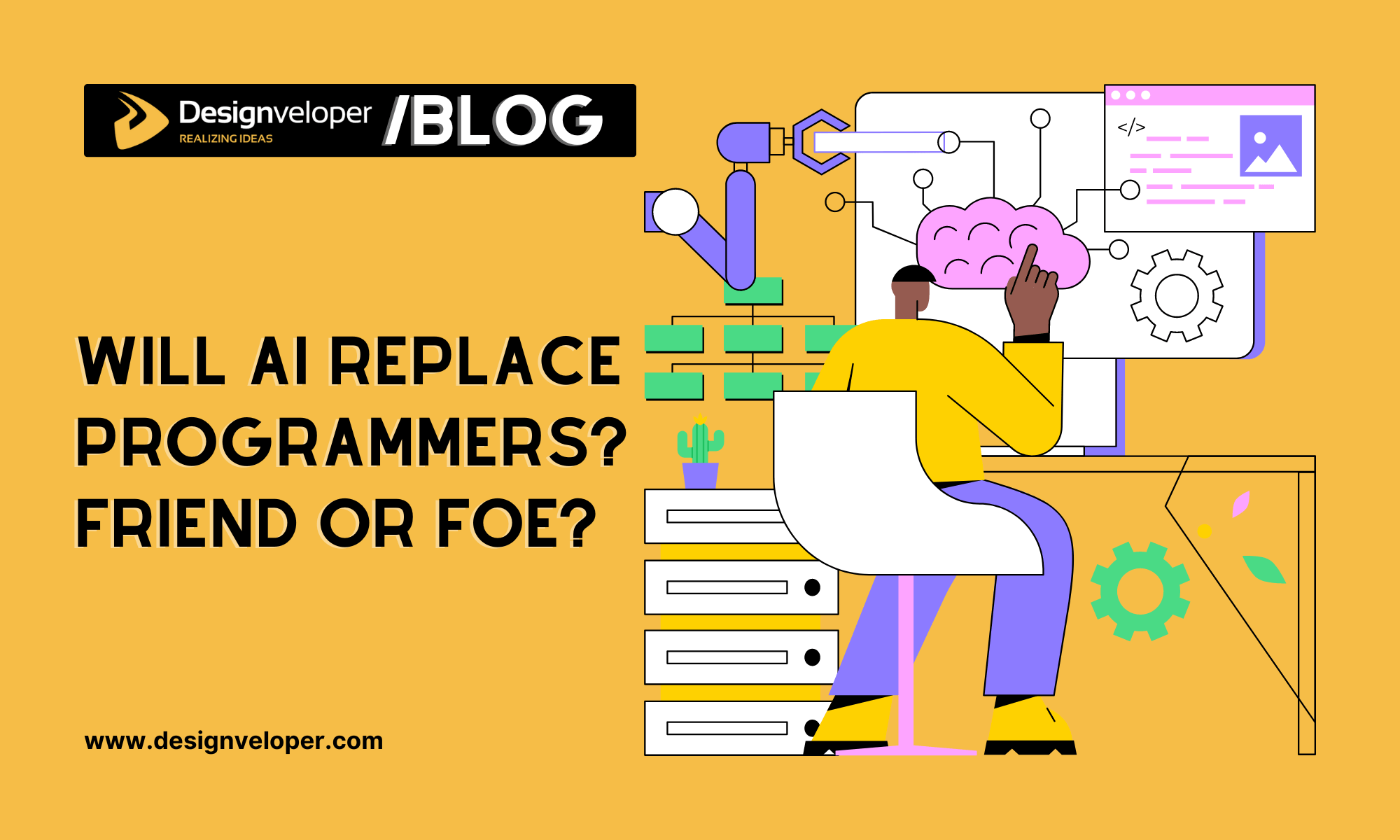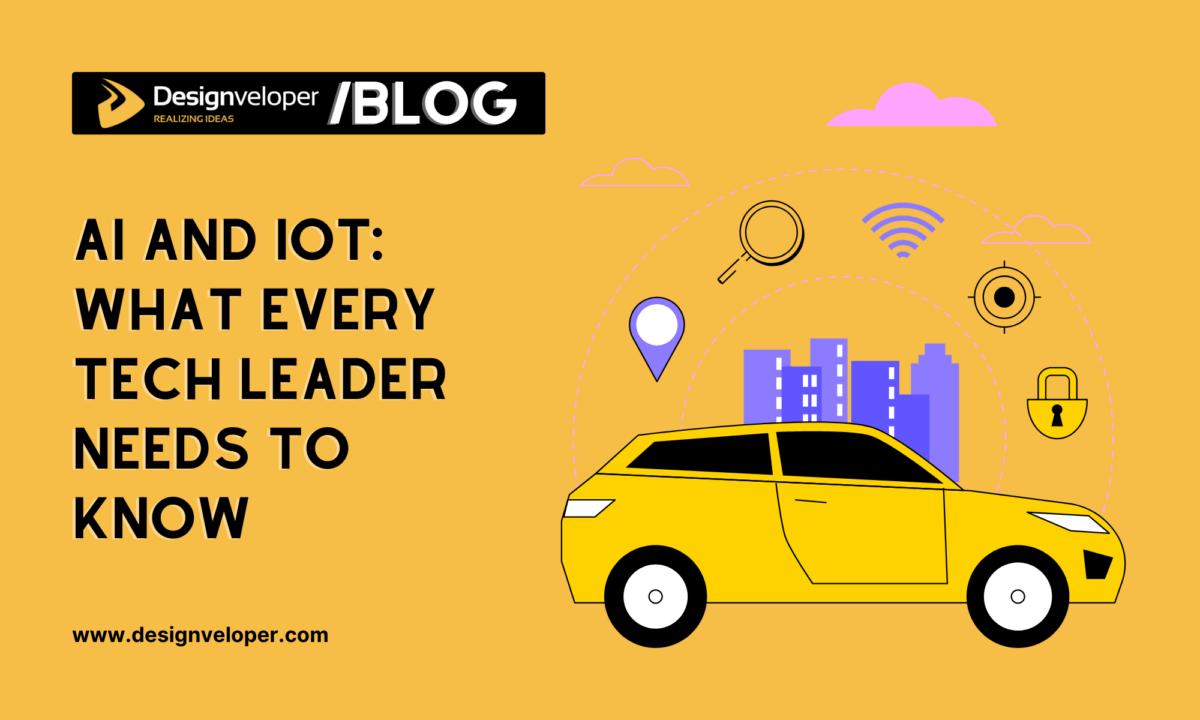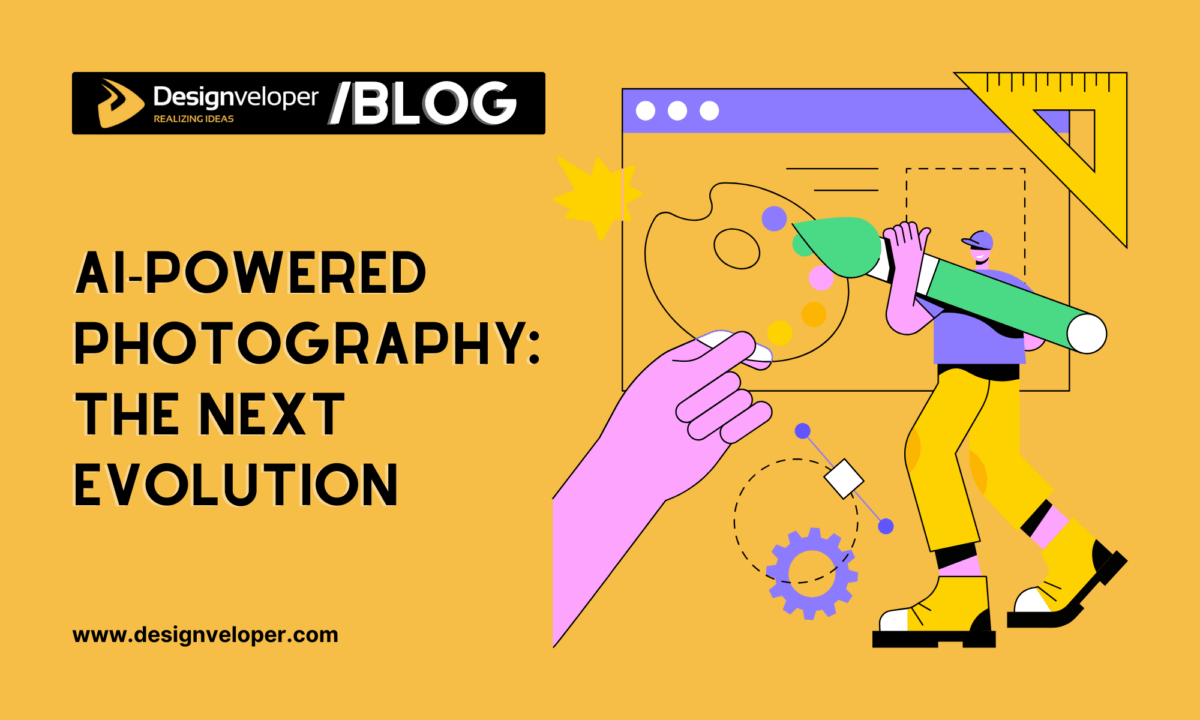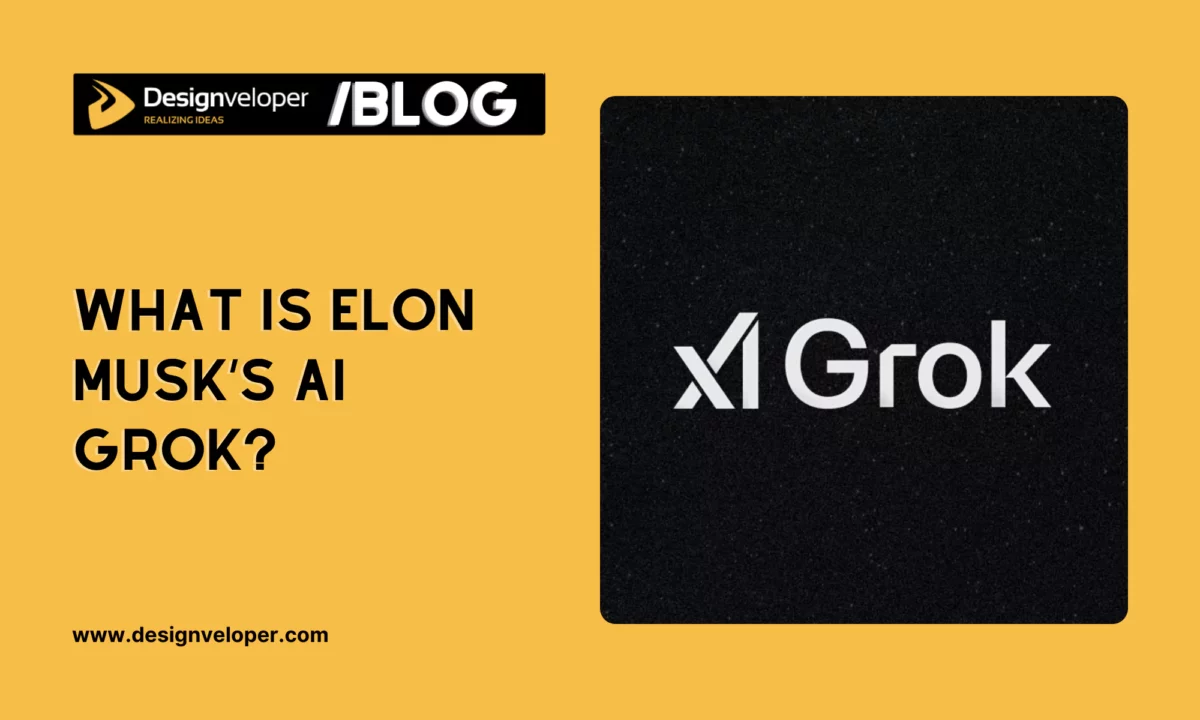
In the ever-changing environment of technology, one issue dominates the thoughts of programmers and enthusiasts alike: Will AI replace programmers? As artificial intelligence (AI) advances at an unparalleled rate, the limits of what is possible appear to blur with each new achievement. AI has shown the ability to change a variety of professions, including programming, by automating boring jobs and autonomously inventing complicated algorithms.
Fear not, programmers! While AI is disrupting the software development industry, the future isn’t a dismal nightmare in which computers take over. Instead, AI provides a unique opportunity to change the way programmers operate. Imagine a world in which AI handles exhausting repetitive jobs, facilitating you to focus on the creative, strategic aspects of programming.
The following piece plunges into the captivating connection between AI and programmers. We’ll look at how AI is now affecting the programming world, refute the idea of complete job displacement, and reveal the fascinating new abilities that programmers will need to flourish in the AI-powered future. So saddle up and prepare to learn how AI can become your most powerful coding partner, not your competitor.
What Is Generative AI?
Generative artificial intelligence (AI) refers to algorithms (such as ChatGPT) that use deep-learning models to generate high-quality text, graphics, and other content based on the data they were trained on. Generative AI has recently gained popularity due to its user-friendly interfaces, which allow anyone to create spectacular text, visuals, and movies in seconds.
Aside from its powers, Generative AI may handle jobs often assigned to programmers, such as developing code and optimizing the programming process. Furthermore, AI is always evolving and becoming more sophisticated, prompting concerns about its ability to replace human workers in a variety of industries, including programming. So, will generative AI replace programmers? To address this worry, it is critical to investigate how AI affects programmers’ work.
How is AI Impacting Programmers?
The integration of AI into software development has ignited a fascinating discussion. While the question “Will AI Replace Programmers?” lingers, the reality paints a picture of collaboration, not competition. AI acts as a powerful synergistic force, boosting programmers’ capabilities and streamlining development workflows. Let’s delve into the specific ways AI is impacting programmers from Designveloper as an individual and other companies in general:
1. Eliminating repetitive tasks:
A significant advantage of generative AI tools lies in their ability to automate repetitive tasks, a hallmark of many coding processes. Tedious activities like manually typing boilerplate code for standard functions are significantly expedited with AI-powered auto-completion features. Additionally, tools like OpenAI’s Codex elevate developer productivity further by suggesting entire functions or lines of code based on natural language descriptions. This extends to automatic code documentation, ensuring adherence to specific formatting styles and freeing developers from this time-consuming chore.
2. Natural language interfaces:
Generative AI models can enable natural language interfaces for software development tools. This could allow developers to interact with their development environments, debugging utilities, and version control systems using natural language commands. This could make these tools more accessible for those without extensive programming expertise, as they would be able to use everyday language to interact with the software development tools.
3. Code suggestion:
Generative AI may also assist newcomers by making context-aware recommendations, explanations, and advice while they write code. This can help new developers learn faster and make software development more accessible.
4. Code improvement:
Generative AI may recommend enhancements to current code by finding duplicate or inefficient sections. This can help maintain code quality and performance over time. Problems that were previously difficult to identify may be discovered and solved considerably more rapidly by using AI-suggested solutions, which can even be done automatically.
In addition, programmers at Designveloper employ AI tools such as ChatGPT, Gemini, and Microsoft Copilot to enhance content quality when drafting tickets or documents. This approach not only elevates the quality of deliverables but also reduces the need for human resources and time dedicated to product quality assurance.
5. Code translation:
Generative AI can also translate code from one language to another, which simplifies code translation or app modernization efforts like modernizing legacy programs by converting COBOL to Java.
6. Code testing:
Generative AI could be used to create test cases autonomously. It may evaluate code and produce test inputs, therefore increasing test coverage and identifying possible flaws early in the development process.
7. Bug detection:
By analyzing large codebases, generative AI can assist software development teams in identifying and even automatically fixing bugs. This can lead to more robust and reliable software, as well as faster development cycles.
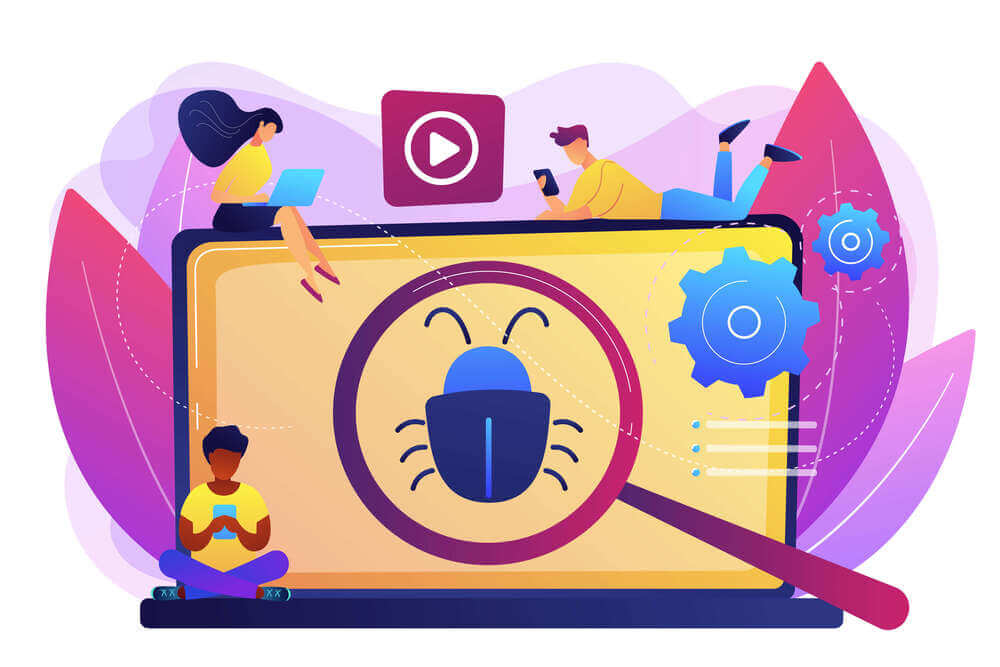
8. Personalized development environments:
Generative AI has the potential to assist in constructing customized development environments that are tailored to individual developer preferences and coding styles. This would increase productivity and make coding more enjoyable for programmers.
9. Enhanced Documentation:
Generative AI models can help engineering teams improve their project documentation. These AI systems can summarize code functionalities, explain algorithms, and provide helpful context around different components of the codebase. This can be valuable for maintaining clear, comprehensive, and up-to-date project documentation, which is crucial for the long-term maintainability and understanding of software systems.
10. Software development:
The incorporation of AI-powered chatbots inside the Designveloper programming team has transformed bug-fixing and information retrieval procedures, adapting to each developer’s unique demands and use cases across the software development lifecycle. In contrast to traditional approaches that rely on long searches on platforms such as Google, Stack Overflow, and Reddit, AI chatbots provide a more customized and fast solution. These chatbots, which use natural language processing and machine learning techniques, can efficiently comprehend the intricacies of programmer requests and deliver individualized responses with great accuracy. This divergence from normal approaches provides a significant improvement in the efficiency and efficacy of bug remediation and information retrieval for programmers.
It is critical to remember that AI development is a continuous process, and its capabilities are continually changing. While artificial intelligence has changed programming, it is not without problems. Delve into the next section to uncover AI’s limitations and discover the definitive answer to the question, “Will AI Replace Programmers?”
In the following section, we’ll look at why AI will not replace programmers but rather become a valued companion in their development journey.
AI limitations in programming
While the incorporation of artificial intelligence (AI) has enormous promise for altering the world of programming, it is critical to recognize the limitations and constraints that come with this disruptive technology. As we explore the concern that AI Will Replace Programmers, it becomes evident that while AI can augment and enhance certain aspects of development, it is not without its constraints.
Here are some common limitations of AI in programming
1. Complexity and Nuance:
AI code generators excel at automating routine and well-defined coding tasks. However, their capabilities are restricted when it comes to dealing with difficult or nuanced programming challenges. These issues frequently necessitate human skills such as intuition, creativity, and deep topic knowledge. Algorithmic limitations can hinder AI in understanding context, inferring user intent, and effectively handling edge cases. Consequently, AI code generation in such scenarios may lead to suboptimal outcomes, potentially introducing errors or inefficiencies in the final product.
2. Lack of Customization:
AI code generators operate on pre-trained models and datasets. While these offer a vast knowledge base, they may not perfectly align with the specific coding styles, frameworks, or project requirements of individual developers or teams. This lack of customization can be a hurdle. Developers might struggle to tailor code generation algorithms to their unique needs, potentially resulting in generic or suboptimal code outputs that require significant modification.
3. Overreliance and Dependency:
While AI code generators offer valuable assistance, there’s a potential risk of overreliance, especially for less experienced developers. This can happen when developers grow overly reliant on automated technologies and lack a deep understanding of fundamental software development principles. Such overreliance can stifle the development of critical thinking, creativity, and problem-solving abilities, all of which are necessary for a successful developer’s skill set.
4. Quality and Security Concerns:
While AI code generators seek to improve code quality, the generated code itself may pose dangers. Errors, weaknesses, or unintended consequences may go undiscovered throughout development. To mitigate these concerns, developers must exercise caution while employing AI-generated code. In this circumstance, rigorous testing, code reviews, and security audits are even more important.
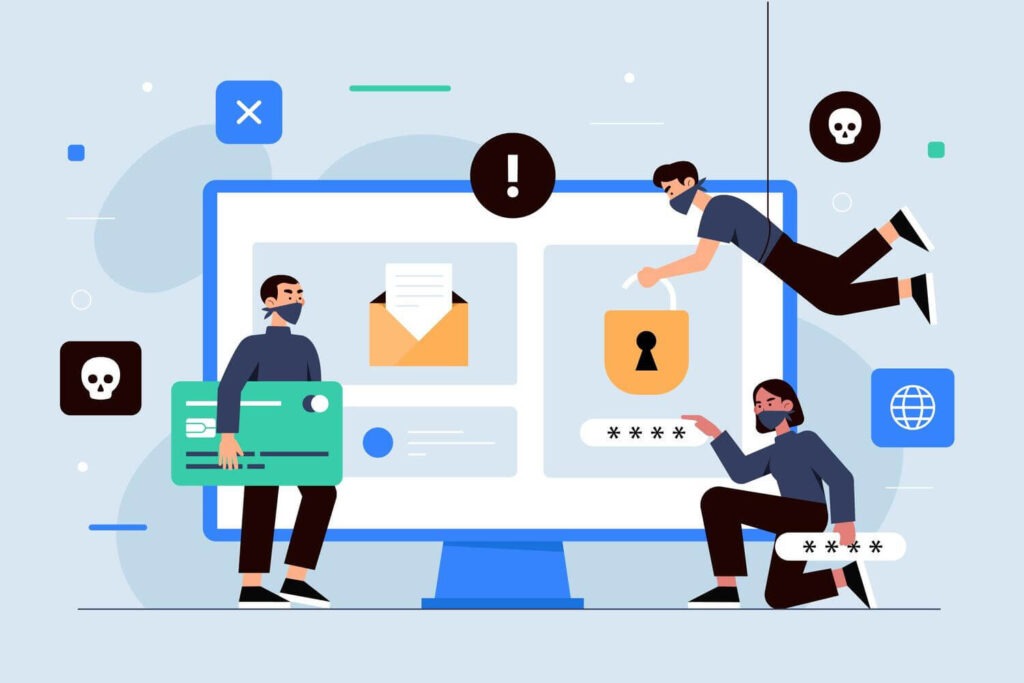
5. Ethical and Bias Considerations:
AI code generators might inherit biases from the data on which they are trained. This can result in the creation of biased or discriminatory programming, with potentially negative repercussions. When using AI to design software, developers must address ethical considerations. This includes making sure that training datasets are varied and representative of the target community, as well as keeping code development procedures visible and responsible. Using these precautions, developers can reduce the danger of bias and promote fairness in AI-generated code.
Will AI Replace Programmers?
The topic of whether AI will replace programmers is both difficult and nuanced.
AI is unlikely to replace human programmers anytime soon. While AI and generative models are improving their ability to assist with specific programming tasks, many elements of software development still require human creativity, problem-solving, and strategic thinking, which AI has yet to master.
A growing consensus among experts suggests that AI is unlikely to replace human programmers in the field of software development. This viewpoint is further supported by numerous reports.
“While advancements in AI technology are impressive, current AI software faces limitations in accuracy. Generated outputs may contain errors, outdated information, or irrelevant content, leading to misinterpretations or ineffective results for end-users. This necessitates caution when relying on AI-generated outcomes, especially in critical applications such as chatbots, image recognition, and information extraction. To guarantee the reliability and effectiveness of AI-generated code, developers must meticulously evaluate and refine it.”
Long Vu, AI Engineer of Designveloper
AI won’t replace programmers, but it will become an essential tool in their arsenal. It’s about empowering humans to do more, not do less.
Satya Nadella, CEO of Microsoft.
An October 2023 study, recently submitted to the International Conference on Learning Representations, taking place in May 2024, suggests that AI is unlikely to replace humans in the software development loop any time soon.
Furthermore, while AI’s skills are undeniably increasing, its current limitations indicate that it will not replace programmers fully soon. Even as AI technology progresses, another key barrier arises human trust. Programmers and software engineers create things that have a big impact on society. For AI to entirely take over these responsibilities, there must be widespread public trust in AI-powered programming. Consider AI evaluating medical records, managing financial systems, or operating key infrastructure such as airplanes and power plants. Earning confidence for such delicate applications is going to take a long time.
Given the limitations of generative AI, it could not replace software engineers at this time. However, it could reduce the number of available software engineering jobs. For example, per the Wall Street Journal, “Jonathan Burket, a senior engineering manager at language-learning app maker Duolingo Inc., estimated he is 25% more efficient with his time since using Copilot because he no longer needs to write code documentation and test cases or look up certain information.”
Given AI’s potential, it is critical to see it as a helpful tool that can supplement rather than replace the job of programmers. By adopting AI technologies and becoming proficient in their use, programmers can streamline their workflow, increase productivity, and focus on more challenging tasks.
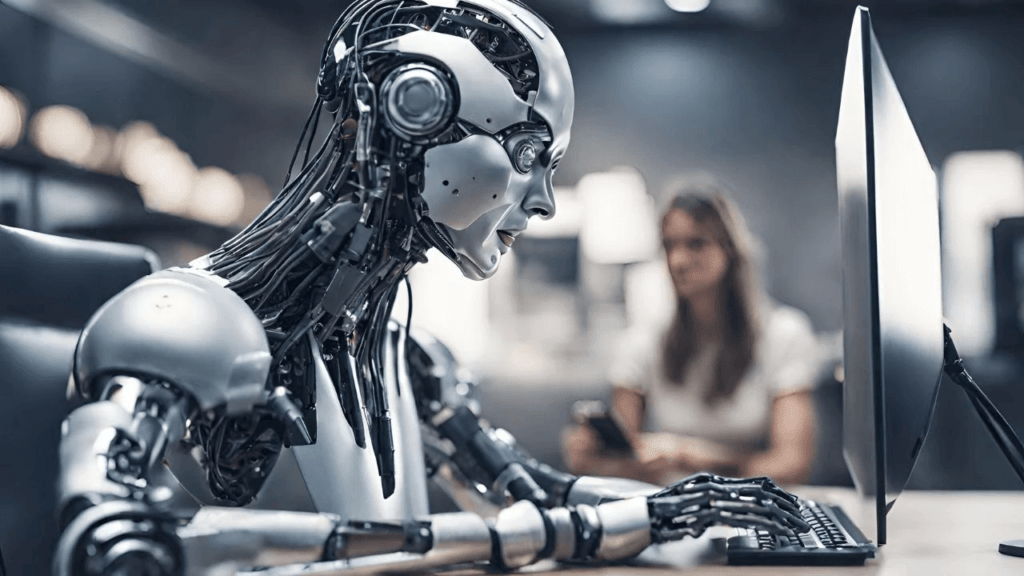
What Could Replace Software Engineers?
Will AI Replace Programmers? The answer is NO. To replace software engineers, you need artificial intelligence with creativity and problem-solving skills equal to or surpassing a human. AI is not yet poised to replace programmers—at least, not until the development of Artificial General Intelligence (AGI) reaches fruition. According to IBM, artificial general intelligence is defined as “intelligent machines that are indistinguishable from the human mind.”
AGI represents a true form of self-learning, adaptable AI capable of understanding and executing a wide range of tasks with human-like flexibility and intelligence. However, the realization of AGI remains a distant goal, and we are still far from achieving it. A significant portion of AI experts believe achieving Artificial General Intelligence (AGI) is a realistic possibility. A survey conducted by Ourworldindata among 352 AI specialists revealed that half predict a 50% chance of AGI by 2061, with 90% expecting it to occur within the next century.
We may be decades away from attaining AGI, given the complexities and challenges inherent in creating such a sophisticated form of artificial intelligence. Until AGI becomes a reality, human programmers will continue to play an indispensable role in shaping and advancing the field of technology.
AI tools for programmers
Building upon the insights from the “Will AI Replace Programmers?” section, it becomes clear that the future of programming lies not in fearing AI, but in harnessing its capabilities and fostering a collaborative partnership.
AI tools for programmers are gaining popularity due to their ability to automate tasks, enhance efficiency, and minimize errors. A range of AI tools with distinct features and capabilities are now available in the market such as:
- ChatGPT: OpenAI’s ChatGPT, a popular AI chatbot, leverages transformers for human-like responses and code generation. It understands, explains, and writes code, surpassing past models in Python tasks. However, limitations like reasoning errors and security vulnerabilities persist.
- GitHub CoPilot: It is an AI-powered assistant designed to aid in code writing. Currently in beta, GitHub CoPilot can complete code snippets, suggest functions and variables, and even help identify and rectify errors. This tool has proven beneficial for developers seeking assistance with their coding endeavors.
- Microsoft’s IntelliCode: Integrated into Visual Studio and Visual Studio Code, IntelliCode offers code completion suggestions, error detection, and even API documentation. Its purpose is to help programmers write better code in a faster and more efficient manner.
- Bard (now named Gemini): This AI chatbot is an AI-powered text editor that shows great promise. Still in development, Bard provides features such as code completion, linting, error checking, and suggestions for code improvement. This tool holds the potential to enhance the coding experience for programmers.
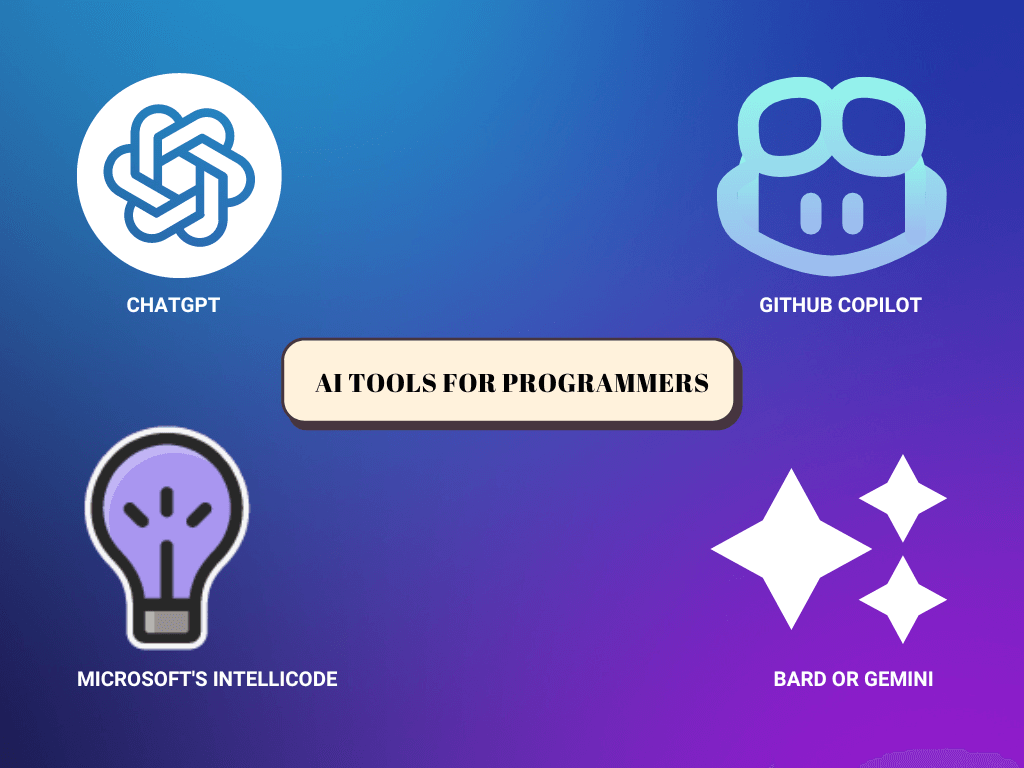
Conclusion
The question “Will AI Replace Programmers?” is decisively answered. AI, while powerful, lacks the critical human elements required for programming. As AI technology advances, the future of programming is not in competition, but in collaboration.
Programmers who embrace AI and learn the essential skill sets will be well-positioned to succeed in the exciting future of software development. The human touch, with its inventiveness, problem-solving skills, and awareness of consumer demands, will be irreplaceable.
By deliberately incorporating AI technologies into their workflows, programmers can achieve unprecedented levels of productivity, innovation, and accuracy. This human-AI collaboration will result in more advanced, user-centered software solutions that benefit society as a whole.
To address the question definitively: AI will not replace in the upcoming time.






Read more topics




























